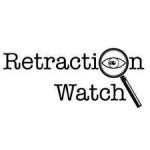 Authors have retracted a case report describing a surgery to remove gallstones in a patient with Crohn’s disease after learning they’d mixed up two cases, and instead reported on a patient who had died 21 days after the procedure.
Authors have retracted a case report describing a surgery to remove gallstones in a patient with Crohn’s disease after learning they’d mixed up two cases, and instead reported on a patient who had died 21 days after the procedure.
We were alerted to this story by La Repubblica, and contacted by the son of the patient (who asked not to be named, for privacy reasons). He told us he found the study and asked the journal to retract it:
…I can say that it was absolutely devastating to realise that the pictures I was looking at were from the surgery that led to the death of my father. It is something that gives me a lot of sorrow thinking that the man in that picture with the open belly was him, when he was fighting for his life. I asked the rest of my family not to see them to avoid them the same shock.
Even before the retraction appeared, we received confirmation it was coming from Giuseppe Paolisso, the Principal of the School of Medicine at the Second University of Naples, where the authors are based: Continue reading Son sees dead father in case report, requests retraction








